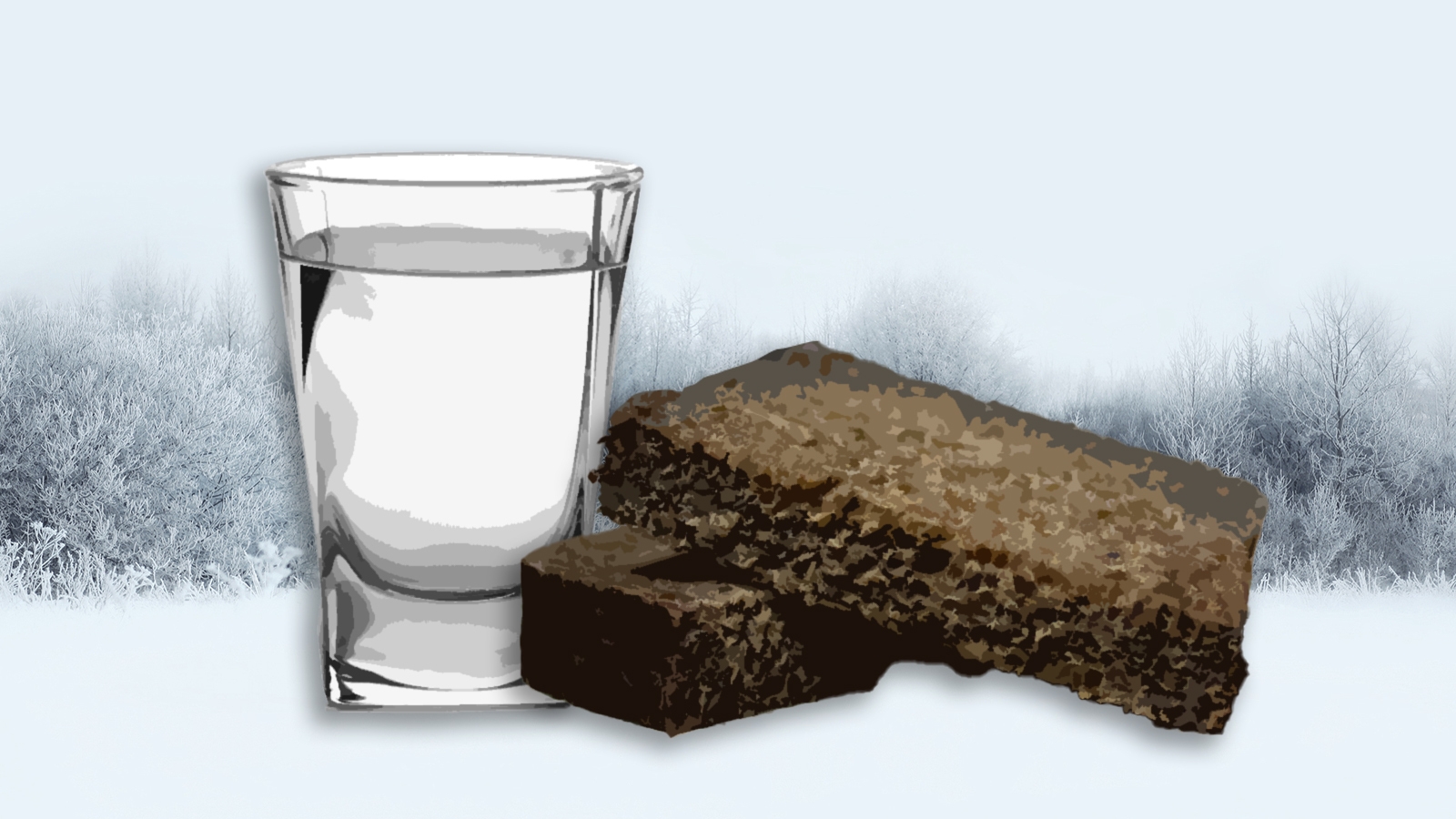In the vast expanse of Russia, where snow blankets the land and tales of generations past echo through time, a unique custom has taken root within the Jewish community. Leaving rye bread and vodka at the graves of family members has become a poignant way to honor and remember. But where exactly does this custom come from? Why black bread and vodka?
For thousands of years in Russia, the only type of bread you could get your hands on was black rye bread. Rye bread is considered a Jewish delicacy, however, this wasn’t always the case. Roman naturalist Pliny the Elder’s diaries, from 2,000 years ago, contain the first known references to rye farming. He described rye bread as, “a very poor food, good only to prevent starvation.” Not exactly a ringing endorsement.
But over time, black bread was able to garner an audience. Black bread’s popularity in Russia is partly due to its affordability and ability to keep fresh for long periods of time. Unlike the white rye with caraway seeds we are familiar with in the States, which are made with a combination of light rye and wheat flours that keep it light and fluffy, Russian Jews tried to cut costs by using as little wheat as possible. So the poorer the community, the darker the bread. Russian rye breads in particular are made using a sourdough starter, which gives the loaf a thick and nutty crust and a tangy center. They tend to be dense and chewy, because the protein in rye is not as strong as the gluten in wheat flour.
No-one knows exactly when the odd custom of leaving black bread at a grave began, but many believe it originates from the Russian tradition of enjoying black rye bread when meeting a new friend. In Russian culture, bread is a metaphor for basic necessities and living conditions. “Bread is the staff of life” is one of the most famous Russian proverbs. Breaking bread with a new friend signals that a friendship has been forged, so leaving the parting gift of bread and vodka acts as a full-circle moment, bringing us back to where we started. It’s a sort of farewell, a parting gift, a final l’chayim.
The Nosher celebrates the traditions and recipes that have brought Jews together for centuries. Donate today to keep The Nosher's stories and recipes accessible to all.
Vodka, of course, is the beverage of choice for most Russians. So much so that in the ‘80s, one-third of all state revenue of the mighty Russian empire came from selling vodka to its own people. It’s also common in Russian tradition to sniff black bread while drinking vodka as a way to offset the strong taste of the alcohol, and due to most Russians being so poor, they had nothing else to chase the drink with; fragrant black bread made for a likely companion.
The act of leaving vodka at the graveside is a gesture of remembrance. It symbolizes the recognition that life, like a shot of vodka, can be bittersweet and that even in grief, we raise a glass to honor the journey of those who came before us.
It’s likely that Russian Jews adopted this tradition when the community was at its peak in the 16th-17th centuries. Sadly, after centuries of discrimination, persecution and the weight of societal pressures, many Russian Jews were forced to find other places to live, namely America, Israel and Germany. What was once the home to over 5 million Jews, the largest Jewish community in the world at the time, is now left with less than 160,000 Jews, with many more emigrating in the wake of the war with Ukraine. For the Jews that remain in Russia, however, leaving rye bread and vodka for the departed is a testament to resilience and an affirmation of identity — a way to pay homage to the struggles and triumphs of ancestors who persevered in the face of adversity.
It also bridges a connection between the generations, a tangible link between the living and the dead. This custom, while deeply rooted in Jewish culture, has been adopted by Russians all throughout the country, in particular the Russian Orthodox Church. In a land where faith intertwines with folklore, the practice of leaving rye bread and vodka at Jewish graves is met with respect and understanding, transcending religious boundaries to become a shared cultural expression.



